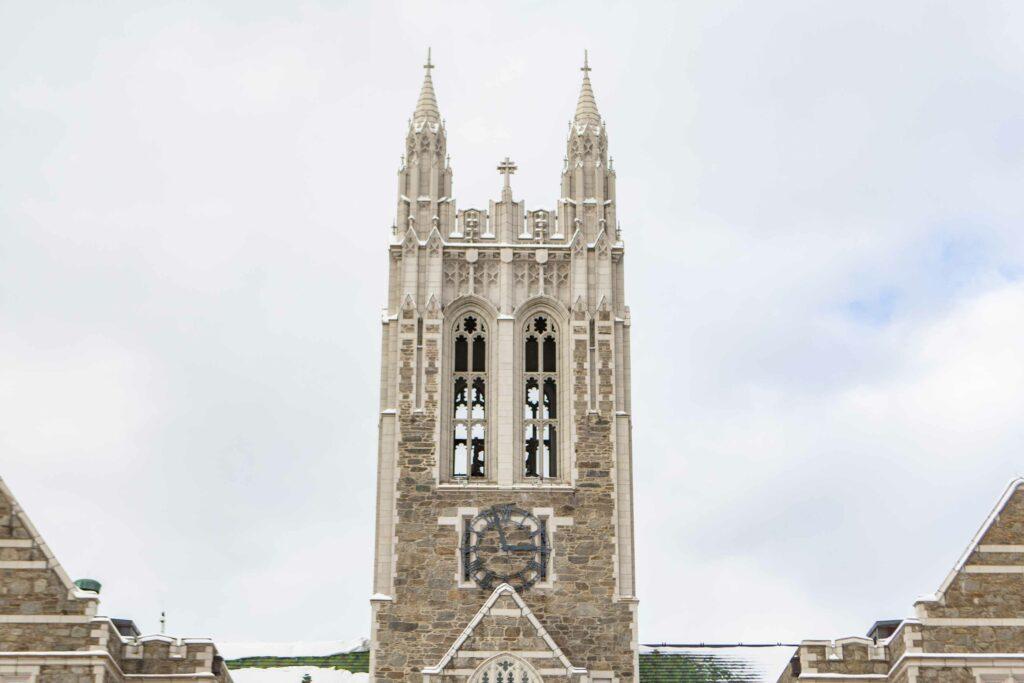The 56-page complaint comes just months after a group of Boston College alumni, local politicians, environmental advocacy groups, and scientists filed a similar complaint in December calling for Healey to use her enforcement powers to order BC to divest from fossil fuels, as reported by The Heights.
The complaint is signed by Fossil Fuel Divest Harvard, other Harvard affiliates, and a number of individual signatories, including Climate Justice at Boston College (CJBC).
CJBC said in a statement that it is “thrilled” to see a complaint against Harvard.
“Attorney General Healey has now received complaints against multiple Massachusetts universities with hundreds of pages of overwhelming evidence and arguments,” the statement reads. “We fully expect a final decision to compel Boston College, Harvard, and all Massachusetts universities that have not already divested from fossil fuels to do so.”
According to the complaint, the Harvard Corporation has a “fiduciary duty” under the Massachusetts Uniform Prudent Management of Institutional Funds Act (UPMIFA) to “invest with consideration for the University’s ‘charitable purposes’—a duty that distinguishes non-profit institutions from other investors.”
The December complaint filed against BC also alleges that the University is violating UPMIFA.
“The Trustees of Boston College have failed to consider the charitable purposes of the institution and the purposes of the institutional fund by financially supporting the degradation of the climate, widespread damage to ecological and human health, and massive injuries to environmental and social equity,” the December complaint reads.
The University reiterated its opposition to divestment in a statement to The Heights in December.
“As with most colleges and universities, Boston College is opposed to divestment from fossil fuel companies on the grounds that it is not an effective means of addressing climate change,” the statement reads.
The University does not use its endowment—which, according to the 2020-21 BC Fact Book, totaled $2.6 billion as of May 31, 2020—to promote change, according to the statement.
“The endowment exists to provide a permanent source of funding for financial aid, faculty chairs, and student programs, as well as the University’s academic and research initiatives, and is not a tool to promote social or political change, however desirable that change might be,” the statement reads.
The statement also said that BC’s Investment and Endowment Committee continues to invest in renewable energy and considers environmental and social considerations when making investments. The statement listed several sustainable initiatives and efforts the University has undertaken, including the construction of LEED-certified buildings and the fact that 100 percent of electricity on campus comes from renewable energy sources.
Kyle Rosenthal, a member of CJBC and CSOM ’21, said in an email to The Heights that CJBC expects that any action taken by Healey will likely not apply specifically to Harvard or BC, but will address both universities and all other Massachusetts private colleges and universities, as they are governed by the same nonprofit laws.
CJBC’s statement in response to the Harvard complaint says that the group hopes BC will divest before the Attorney General’s Office takes legal action.
“While we continue to seek dialogue with administrators and trustees and hope that action will be taken by the university before the Attorney General steps in, we stand ready to ensure Boston College fulfills its fiduciary duties to prudently manage our endowment,” the statement reads. “No one wants the university to be legally compelled when that is not necessary.”
The new complaint also says the Harvard Corporation’s failure to divest from fossil fuels goes against its mission as a university. The Harvard Corporation is the smaller of Harvard University’s two governing boards, and is composed of 13 members, including Lawrence Bacow, president of Harvard University.
“The Corporation cannot plead ignorance of its duty to divest,” the complaint reads. “For years, Harvard students and faculty have pushed for investment practices that align with the university’s mission.”
The December complaint against BC expressed a similar sentiment.
“Boston College’s mission statement includes commitments to ‘the pursuit of a just society,’ ‘academic freedom,’ and ‘careful stewardship of its resources,’” the December complaint reads. “Boston College touts a dedication to environmental and social justice: its Institutional Master Plan ‘encourage[s] the University community to contribute time and talent to the larger communities in which they live and work, including efforts in sustainability to ensure the quality of life for future generations.’”
The complaint against BC came six months after Pope Francis urged Catholics to divest from fossil fuels “progressively and without delay” in “Journey Towards Care for Our Common Home,” a 227-page Church document released on the 5-year anniversary of Pope Francis’ encyclical Laudato Si.
CJBC’s statement comments on the decisions of other colleges and universities—specifically Catholic ones—to divest, noting that several have made this decision since the complaint was filed in December.
Creighton University, a Jesuit institution, where University President Rev. William P. Leahy, S.J., and Rev. Casey Beaumier, S.J., director of the Institute for Advanced Jesuit Studies, serve on the Board of Trustees, divested in January of this year. Daniel S. Hendrickson, S.J., the president of Creighton, serves on BC’s Board of Trustees.
“If all 3 supported divestment for both moral and financial reasons at Creighton, they have an obligation to do the same at Boston College,” CJBC’s statement reads.
Featured Image by Ikram Ali / Heights Editor







